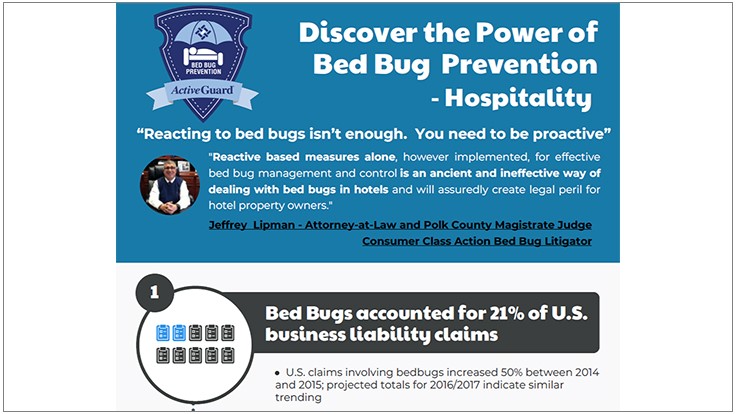Protect Your Garden From Pests: Recommendations For Maintaining Undesirable Intruders Away
Protect Your Garden From Pests: Recommendations For Maintaining Undesirable Intruders Away
Blog Article
Web Content By-Lambertsen Warren
Imagine your garden as a sanctuary, a place of peace and elegance. However, the existence of outdoor bugs can swiftly disrupt this picturesque picture. What if there were straightforward yet efficient means to keep these unwelcome site visitors at bay and safeguard your garden sanctuary? By following a few functional tips and carrying out all-natural approaches, you can create a harmonious outside area where your plants can thrive uninterrupted.
Natural Bug Deterrents
To keep pests away from your garden normally, plant aromatic natural herbs like mint and lavender. These fragrant plants not only add charm to your yard however additionally act as efficient parasite deterrents. Parasites like mosquitoes, flies, and also some garden-damaging insects are repelled by the solid fragrances emitted by these natural herbs. Merely placing them tactically around your yard can help develop an all-natural obstacle against undesirable parasites.
In addition to mint and lavender, consider growing various other herbs like rosemary, basil, and lemongrass to further boost your garden's pest-proofing capacities. These herbs not just serve as all-natural repellents however additionally have the included advantage of serving in cooking or crafting home made solutions.
Strategic Plant Positioning
Consider the layout of your garden and the sorts of plants you need to purposefully position them for maximum pest-proofing effectiveness.
Start by organizing plants with similar resistance to bugs with each other. By doing this, you can produce an all-natural obstacle that prevents insects from spreading out throughout your yard.
Additionally, positioning pest-repelling plants like marigolds, lavender, or mint near more susceptible plants can aid safeguard them. Tall plants, such as sunflowers or corn, can function as a guard for shorter plants against parasites like bunnies or ground-dwelling bugs.
mice control in house in mind to leave adequate room in between plants to boost air blood circulation and reduce the risk of illness that pests could lug.
Moreover, consider growing strong-smelling herbs like rosemary or basil near vulnerable plants to confuse parasites' senses and make it harder for them to find their targets.
Reliable Parasite Control Approaches
For combating yard insects properly, carrying out a multi-faceted insect control method is essential. Start by urging your domain name like birds, ladybugs, and hoping mantises to help maintain pest populations in check. Presenting plants that bring in these useful insects can aid in parasite control. Additionally, practicing great garden hygiene by removing particles and weeds where parasites may conceal can make your yard much less congenial to unwanted site visitors.
Take into consideration making use of physical obstacles such as row cover fabrics or netting to shield vulnerable plants from insects like caterpillars and birds. Using natural chemicals like neem oil or insecticidal soap can also work against specific insects while being less hazardous to useful pests and the setting. http://vtfishandwildlife.com/get-involved/citizen-reporting to revolve your plants each period to avoid the accumulation of parasite populaces that target certain plants.
On a regular basis examine your plants for indications of parasite damages so you can do something about it promptly. By combining these techniques and remaining alert, you can effectively manage garden bugs and enjoy a successful, pest-free garden.
Verdict
So, there you have it - with the appropriate techniques, you can maintain pesky outdoor bugs away from your yard and help your plants grow.
Did you recognize that planting mint has been shown to push back insects and other pests, lowering the demand for hazardous pesticides by as much as 60%?
By incorporating all-natural deterrents and smart planting methods, you can create a beautiful and pest-resistant yard sanctuary for you to delight in.
